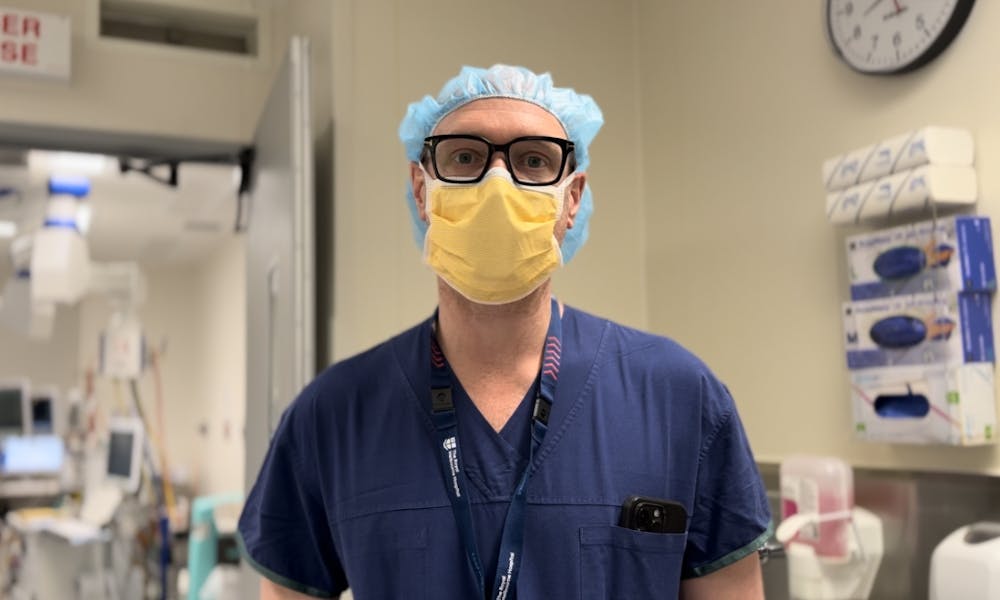In a world-first, specialists at the Royal Melbourne Hospital (RMH) have successfully implanted a device into a prostate cancer patient in the hope of preserving sexual function after surgery.
Led by the RMH Urological Surgeon Mr Phil Dundee, and in partnership the Australian Prostate Centre, the small stimulator device was implanted on 3 August as part of a first-in-human clinical trial that will test whether erectile dysfunction post-prostatectomy can be avoided.
“After the prostate was removed, nerve stimulators were placed on the nerves that are required for erectile function,” Mr Dundee said.
“The nerve stimulators are then connected to an implantable pulse generator, which communicates with an external hand-held device."
Each battery-operated stimulator is about the size of a thumbnail and connects to the battery and pulse generator just under the skin in the lower abdomen.
“We hope that stimulation will lead to activation and even regeneration of the nerves, so that spontaneous function can return in the long term,” Mr Dundee said.
For about 70 per cent of men worldwide, a common side effect of prostate cancer is the loss of sexual function. This is due to nerve damage which can occur when the prostate is removed.
If successful, these side effects could be controlled or reversed.

Mr Dundee said while it was early days, the device had the potential to “be a major breakthrough for prostate cancer outcomes” and has promise for patients with other conditions, such as spinal cord injuries.
“For some men, the secondary effects of treatment can have a profound effect on their quality of life and relationships,” Mr Dundee said.
“Because some men avoid treatment or even testing for prostate cancer because of the fear of side effects, this may encourage more men to seek help, and a diagnosis, earlier.”
Approximately 20,000 men are diagnosed with prostate cancer every year in Australia, with 10 people dying from the disease every day.
About 20 patients will participate in the trial, which is currently recruiting.

We provide a media service from 6am to 9pm each day. Journalists are welcome to contact our media adviser on-call via the RMH Switchboard on (03) 9342 7000.
During business hours, journalists can email mh-communications@mh.org.au. We do not respond to emails outside business hours.

